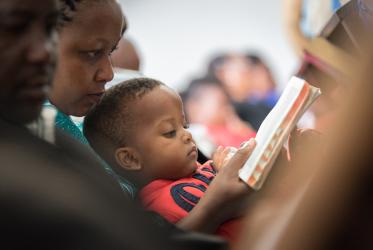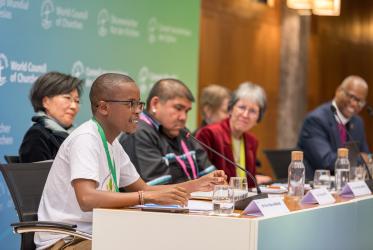"As a result of climate change, more girls fleeing from floods and droughts are exposed to trafficking and sexual exploitation,” said WCC programme executive for Child Rights Frederique Seidel.
"Churches are helping at all levels. From providing support to victims and addressing the root causes of the climate crisis, to advocating for climate-responsible finance, one of the most effective initiatives to stop the path described by the IPCC's Working Group 2 report,” concluded Seidel.
Seidel offered a faith perspective on climate change, children's rights, and how faith communities have contributed to ending violence against children during the online event.
The online event also discussed the systems and architecture that enable or impede the realization of child rights in the context of climate change. Connected agendas for a child-centred approach and an integrated response were offered as crucial steps to tackle the problem.
"Climate Justice initiatives with and for Children" is the third pillar of the Churches' Commitments to Children programme. Several resources have been developed to help churches organize activities with children to protect our planet.
Resources for churches to support initiatives for and with children and adolescents
Churches Commitments to Children action plan
New WCC toolkit empowers churches to work with children and youth for climate justice
WCC climate justice project wins Keeling Curve Prize





